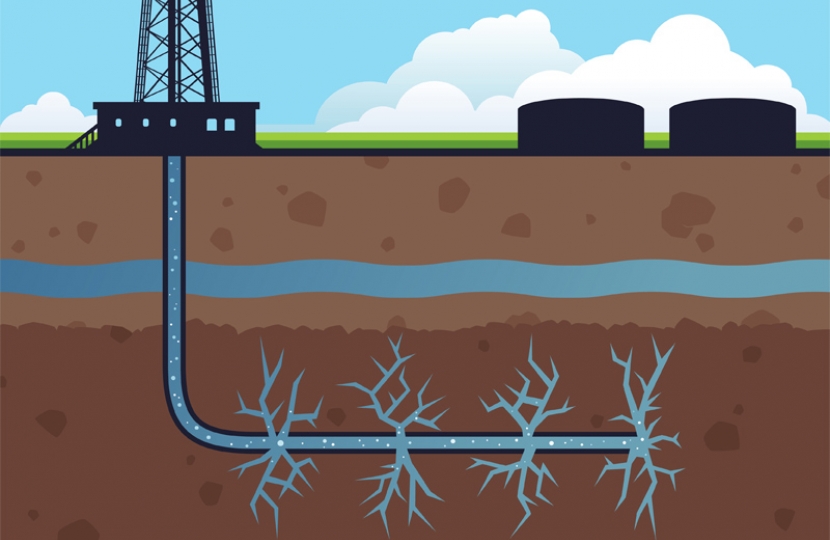
In response to the campaign emails which she has received on the Infrastructure Bill and fracking, Theresa Villiers MP has issued the following statement:
When it comes to decisions on fracking and underground access for shale gas exploration, safety is the Government’s top priority. The UK has over 50 years of experience in regulating the onshore oil and gas industry and we have a strong regulatory regime for shale gas extraction. The Health and Safety Executive (HSE) is responsible for checking all aspects of operators' plans and designs, and no site will be given the go ahead without first meeting strict safety criteria.
Operators will need an environmental permit before any exploratory work can begin. The Environment Agency (EA) has the power to revoke this if there is an incident which causes pollution, environmental damage, or if there is a breach of the permit or non-compliance with environmental legislation. As a condition of an environmental permit, for example, the EA can require to undertake baseline monitoring for any period of time. It also requires the disclosure of information on chemicals, which it then publishes. If there is a matter of concern, the HSE and the EA inspectors can visit any site at any time.
The proposals in the Infrastructure Bill would provide access to underground land but only below 300m, with a voluntary payment from industry and a voluntary public notification for access. However, any hydraulic fracturing would only occur at far greater depths of 1.5 kilometres or more. The Department of Energy and Climate Change has confirmed that this is so deep that it will not lead to negative impact on landowners.
We need to strike the right balance between the legitimate concerns of landowners, and the benefits to society as a whole of permitting development. Many other industries already access underground land in order to lay cables and build infrastructure such as water pipes and tunnels. These are much closer to the surface than the access concerned here.
For example, the deepest tube station is around 32m below ground. Moreover, the provisions in the Bill do not change any other aspect of the existing regulatory system, such as procedures for surface access, planning, environmental permits or safety controls. The proposals do not weaken existing requirements for public consultation prior to the granting of planning permission, or environmental permits for developments.

